
Overload With Work And Family Duties
Women are more likely to suffer from midlife depression than men. This is because at this age most people are squeezed between the demands of their young children, marriage, their aging parents, and most of all, their job. It is hard to fulfill all these demands and you may become overwhelmed. Your workload may be too heavy, yet taking a break from your your job is out of question at that time because you need money to feed your family and pay your mortgage. This "sandwich generation" burden is hard to manage and about 50 percent of that generation's women fall into depression as a result.
- Important notification about information and brand names used in this slideshow!
- Photo courtesy of Valentin Ottone by Flickr : www.flickr.com/photos/saneboy/3617855124/

Midlife Crisis Or Midlife Depression
Mid-life age is anywhere between 37 to 50 years. A midlife depression or midlife crisis is a feeling like you are trapped — in your job, family, or just the life you lead. Many people at this age feel like middle age is closing in on them. A study in 2008 found that depression spans the globe. The data for this study was collected from 2 million people approximately. 50 is the peak age of depression for women and 40 for men. Usually this depression starts to lift during a person's 50s because after going through all these years of life people learn to adapt their weaknesses and strengths and value life more.

Did You Know About The B12 Blues?
The B12 blues refers to a depression that is due to a lack of vitamin B12 in the body. Vitamin B12 is essential for human body and plays an important role in producing brain chemicals that enhance your mood. The body takes vitamin B12 from the food we eat. When the food gets to the stomach, acid present in the stomach stimulates the release of vitamin B12 from the food. At any point, mostly in midlife, the level of stomach acid falls due to which a deficiency of B12 may occur. As a result, the affected person may experience lethargy, depression, and forgetfulness. You are advised to increase the consumption of foods rich in B12 such as meat, chicken, eggs, and cheese. You can also take some B12 supplements.
- Important notification about information and brand names used in this slideshow!
- Photo courtesy of zeevveez by Flickr : www.flickr.com/photos/zeevveez/8730314599/
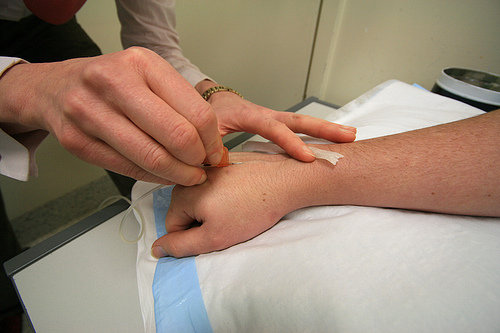
Low Levels Of Thyroid Hormones Trigger Depression
The thyroid gland releases two essential hormones, T3 & T4, that affect almost every organ of the human body. Depression can be the result of an under-active thyroid (hypothyroidism) or in rare cases an over-active thyroid (hyperthyroidism). Low levels of thyroid hormones slow down the metabolic rate of the body which results in weight gain, tremors, and cold intolerance. It also causes sadness and depression. More than 50 percent of all thyroid patients fall into depression. Higher levels of thyroid hormones also cause depression but the symptoms include weight loss, confusion, insomnia, and confusion. Depression due to thyroid disorders is curable if thyroid disease is treated carefully.
- Important notification about information and brand names used in this slideshow!
- Photo courtesy of ToniFish by Flickr : www.flickr.com/photos/the_smileyfish/4563865793/
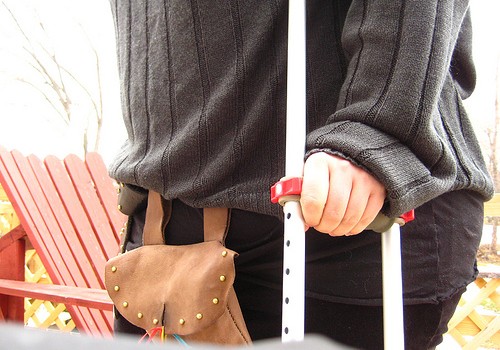
Chronic Pain Is A Risk Factor For Depression
One of the worst things a person can experience in life is chronic pain, and that's something that is more likely to happen with age. During these years of life, a person is already going through lots of pressure in his/her life. Besides all these problems, living with an illness that causes chronic pain such as low back pain, chronic headache, arthritis, osteoarthritis, fibromyalgia, nerve damage (neuropathy), or other medical conditions increases your risk of depression. As a matter of fact, people suffering from any disorder that is associated with chronic pain are three times more likely to have depression or another psychiatric disorder.
- Important notification about information and brand names used in this slideshow!
- Photo courtesy of Patty by Flickr : www.flickr.com/photos/psexypsychic/6796745673/
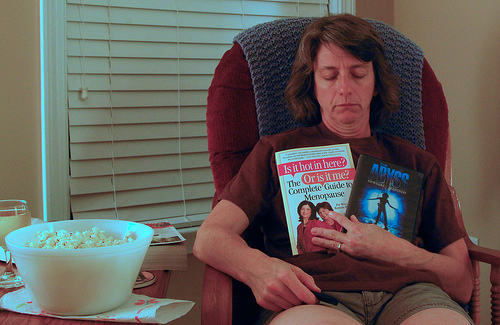
Menopause Is A Major Trigger Of Depression In Women
Menopause (cessation of menstruation) is a phase in a woman’s life marked by irregularities. It usually occurs between 45 to 50 years of age. Oscillations in sex drive, metabolism, and blood circulation can be expected. Depression is one of the major symptoms of the menopause, along with other symptoms like weight gain, hot flashes, insomnia, and vaginal dryness. Depression during menopause is caused by changing hormone levels, and the reduction in estrogen and testosterone can increase a woman’s depression risk. Hormonal fluctuations reach a peak during the perimenopause (beginning stage of menopause). This is the time when depression is most likely to rear its ugly head.
- Important notification about information and brand names used in this slideshow!
- Photo courtesy of Karen P by Flickr : www.flickr.com/photos/karenpaulson/1607212314/
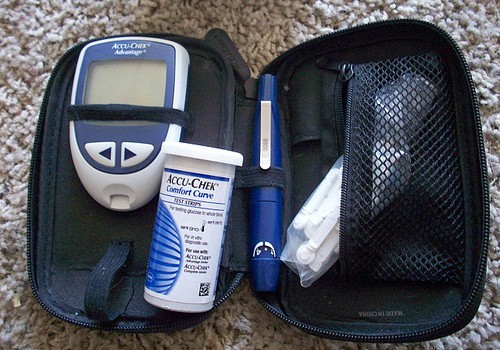
Type 2 Diabetes May Lead To Depression
Any chronic condition, including diabetes, can cause a dangerous complication – depression. Diabetes, especially type II diabetes, is a chronic illness that occurs in adults at any age though it tends to occur in early midlife. This chronic illness is a silent killer. Complications tend to start occurring about five years after the disease's initial development. Depression is a common complication of diabetes, even when you include other complications such as neuropathy (nerve weakness), retinopathy (weak eye sight), and nephropathy (kidney disorder). Checking blood sugar levels regularly and visiting your doctor regularly makes it very hard for most of patients to lead a normal routine life. Sick of all these factors, these patients fall into depression.
- Important notification about information and brand names used in this slideshow!
- Photo courtesy of Alisha Vargas by Flickr : www.flickr.com/photos/alishav/3521321716/
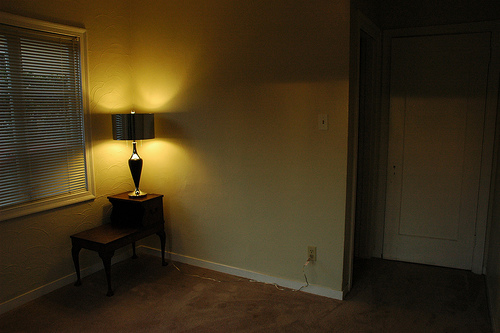
Empty Nest – A Major Trigger Of Depression
The "empty nest syndrome", or living alone in a house makes you feel lonely and empty on the inside. If a person is living alone in his midlife, it is quite hard for him/her to survive and keep himself from getting depressed. Living in an empty nest can easily push a person into depression and anxiety. Moreover, if a person is going through retirement or menopause at the same time, he may experience visual or audible hallucinations, mood swings, unexpected grief, and other symptoms. Such people are more likely to suffer from extreme depression and may develop generalized anxiety disorder, but this is rare.
- Important notification about information and brand names used in this slideshow!
- Photo courtesy of Wonderlane by Flickr : www.flickr.com/photos/wonderlane/3154759585/

Drinking And Depression
People who feel over-burdened with their work, family, marriage, or some other factor may start to drink heavily to keep themselves away from this stress. About 25 percent of older people who drink heavily have major depression. Such people think that they can drown their sorrows with the help of alcohol. The question is still: does depression lead to alcohol abuse, or does alcohol abuse lead to depression? They are however interconnected. Researchers say that people living alone in midlife are more likely to abuse alcohol and fall into depression. If a person with depression in his midlife starts to drink, it may make him fall deeper into depression and anxiety, and it may be harder for him to recover.
- Important notification about information and brand names used in this slideshow!
- Photo courtesy of michelle@TNS by Flickr : www.flickr.com/photos/25904307@N08/5667059371/

Low Level Of Sex Hormones Causes Loss Of Interest In Sex
Testosterone is an important sex hormone that begins to release at puberty. This hormone is very important, especially for men, because the release of this hormone arouses sexual feelings in men. Sex is necessary for men (and women) to lead a successful life. As men age, their bodies reduce the production of these sex hormones. Low levels of these hormones can, in turn, cause depression and erectile dysfunction (ED) – inability to maintain or get an erection. This also causes decreased libido or decreased interest in sex. Low testosterone levels frequently trigger depression, especially in men.
- Important notification about information and brand names used in this slideshow!
- Photo courtesy of Jose Fraisse by Flickr : www.flickr.com/photos/jose-fraisse/5985498775/






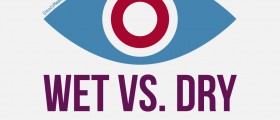

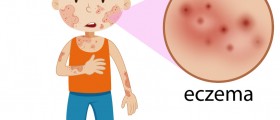




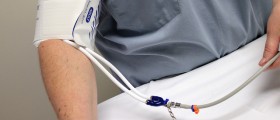




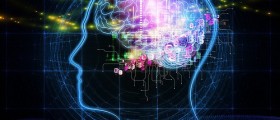








Your thoughts on this
Loading...